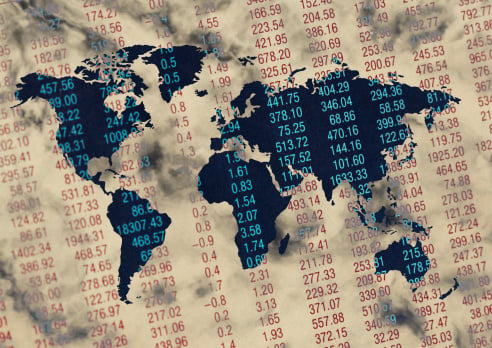Investing
World Bank Comes Late to Economic Growth Bashing
Published:
Last Updated:
The World Bank has issued an economic forecast for 2013 that bears substantial similarities to those issued earlier by other agencies, credit rating firms and bankers. The global economy will not recover based on gross domestic product, the World Bank reports, and the overall chance of a turnaround has risk, even into 2014. America continues to be at the center of any set of predictions. The organization hardly needed to make the observation. Source: Thinkstock
Source: Thinkstock
In a report titled “Global Economic Prospects,” the organization reported:
The World Bank estimates global GDP grew 2.3 percent in 2012. Growth is expected to remain broadly unchanged at 2.4 percent growth in 2013, before gradually strengthening to 3.1 percent in 2014 and 3.3 percent in 2015.
The developed world will continue to lag and the developing one will speed its expansion.
At the center of the World Bank analysis, of course, is the United States. Most economists expect that China, the world’s second largest economy, will grow by 8% or better. The entire European Union, which has a combined GDP slightly larger than America’s, will contract based by that measure. Japan, the world’s third largest economy, will stay in trouble.
But U.S. GDP is a large enough part of the global number that its effects continue to be profound. The World Bank analysis:
January 1, 2013 agreement on tax measures resolved most of the immediate concerns about the fiscal cliff, the legislation offers only a temporary reprieve (until end of February) before the remaining mandatory cuts to government spending included in the fiscal cliff kick in (approximately $110bn in 2013 or 0.1 percent of GDP).
If no credible medium-term plan for fiscal consolidation is found by end of February and debt-ceiling legislation is unchanged or only short-term extensions provided for, the economy could be subjected to a series of mini-crises and political wrangling extending over the foreseeable future. This could have potentially strong negative consequences for confidence, and even the credit rating of the United States.
Put another way, much of the risk of global GDP expansion sits in the hand of a few hundred members of the House of Representatives, the Senate and the president.
A countervailing opinion suggests that China, Brazil and some portion of the balance of the developed nations will grow fast enough to offset U.S. troubles. But, given America’s $15 billion GDP, that point of view has its base in assumptions that are impossible.
Ever wanted an extra set of eyes on an investment you’re considering? Now you can speak with up to 3 financial experts in your area for FREE. By simply
clicking here you can begin to match with financial professionals who can help guide you through the financial decisions you’re making. And the best part? The first conversation with them is free.
Click here to match with up to 3 financial pros who would be excited to help you make financial decisions.
Thank you for reading! Have some feedback for us?
Contact the 24/7 Wall St. editorial team.